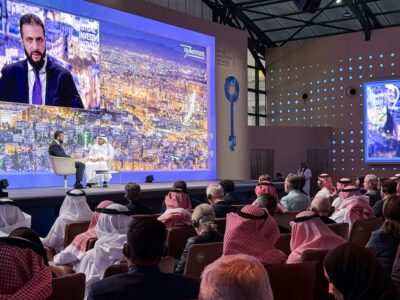Backed by Western powers, the Arab League and Qatar urged the UN Security Council on Tuesday to take swift action to stem the escalating violence in Syria and endorse an Arab plan for Syrian President Bashar al-Assad to step aside.
They called on the 15-nation body to approve a resolution backing the plan after months of council deadlock in which Russia has prevented any condemnation of its ally Damascus.
But Russia, a veto-holder that has said it rejects key provisions of the European-Arab draft resolution, struck a more conciliatory note at Tuesday’s meeting, saying it believed the council can and should reach consensus on the Syrian crisis.
Arab League Secretary-General Nabil Elaraby called on the council to take “rapid and decisive action” by approving the resolution and Qatari Prime Minister Sheikh Hamad bin Jassim al-Thani warned that Syria’s “killing machine is still at work.”
“Do not let the Syrian people down in its plight,” Elaraby said.
Syrian UN Ambassador Bashar Ja’afari rejected the suggestion that his government was responsible for the crisis, and accused Western powers of dreaming of “the return of colonialism and hegemony” in the Middle East.
Western and Arab diplomats say they want the council to vote on the draft resolution, which says the body “fully supports” the Arab League plan for Syria, before the end of the week. Council envoys are due to hold negotiations on Wednesday.
“We all have a choice: stand with the people of Syria and the region or become complicit in the continuing violence there,” US Secretary of States Hillary Clinton said.
“The United States urges the Security Council to back the Arab League’s demand that the Syrian Government immediately stop all attacks against civilians and guarantee the freedom of peaceful demonstrations.”
Elaraby said Arab nations wanted to avoid foreign military intervention in the 10-month-old Syrian crisis that has killed more than 5,000 civilians according to UN figures, a point Sheikh Hamad also emphasized. The Qatari premier suggested the council should use economic leverage instead.
“We are not calling for a military intervention,” Sheikh Hamad said. “We are advocating the exertion of a concrete economic pressure so that the Syrian regime might realize that it is imperative to meet the demands of its people.”
“We are not after regime change, for this is a matter that is up to the Syrian people to decide,” he added.
The two men’s comments appeared aimed at Russia, which Western diplomats are worried may veto the draft resolution out of fear that it could lead to a Libyan-style military operation.
Russian UN Ambassador Vitaly Churkin repeated Moscow’s criticism of the Arab League plan but welcomed the fact that the European-Arab text included elements of an earlier Russian draft rejected by Western powers and the league as too weak.
Article continues on next page…
“We found some of the elements of our text in it, and this gives rise for hope,” he said. “We hope that the council will come to consensus on the Syrian issue, as is not only possible but also necessary.”
Russia and China vetoed a European-crafted resolution in October that would have condemned Damascus and threatened it with sanctions.
Russia rejects the Arab League call for Assad to give up power and diplomats are trying to replace language voicing full support for the Arab plan with wording that Moscow could accept.
French Foreign Minister Alain Juppe welcomed Churkin’s expression of willingness to negotiate on the draft resolution, as did Germany’s deputy foreign minister, Michael Link.
British Foreign Secretary William Hague addressed Russian fears that Syria could become another Libya, telling the council the resolution “does not call for military action and could not be used to authorize it.” Juppe described the idea of such intervention as a myth.
“We are ready to vote now on the text,” Juppe said.
Both Sheikh Hamad and Elaraby blamed the crisis in Syria squarely on the government, whereas Russia has sought to blame the opposition and government equally. Elaraby said the opposition had resorted to arms because of what he called “the excessive use of force” by Syrian authorities.
In defiant remarks, Syria’s Ja’afari charged that Arab League leaders had put a negative spin on a report by league monitors in Syria, and sparred verbally with Sheikh Hamad, whose country has harshly criticized Syria and last year backed Western action in Libya.
“Is Qatar a member of NATO or the Arab League?” Ja’afari asked with sarcasm.
Clinton said that by pitting ethnic and religious groups against each other, Syrian leaders were bringing their country closer to the brink of civil war.
“The evidence is clear that Assad’s forces are initiating nearly all the attacks that kill civilians, but as more citizens take up arms to resist the regime’s brutality, violence is increasingly likely to spiral out of control,” she said.



![The Arab League has urged Syrian President Bashar al-Assad to step down [Getty Images]](https://www.arabianbusiness.com/wp-content/uploads/sites/3/cloud/2021/09/13/2Ieh8Qvf-136739982-1-768x544.jpg)




